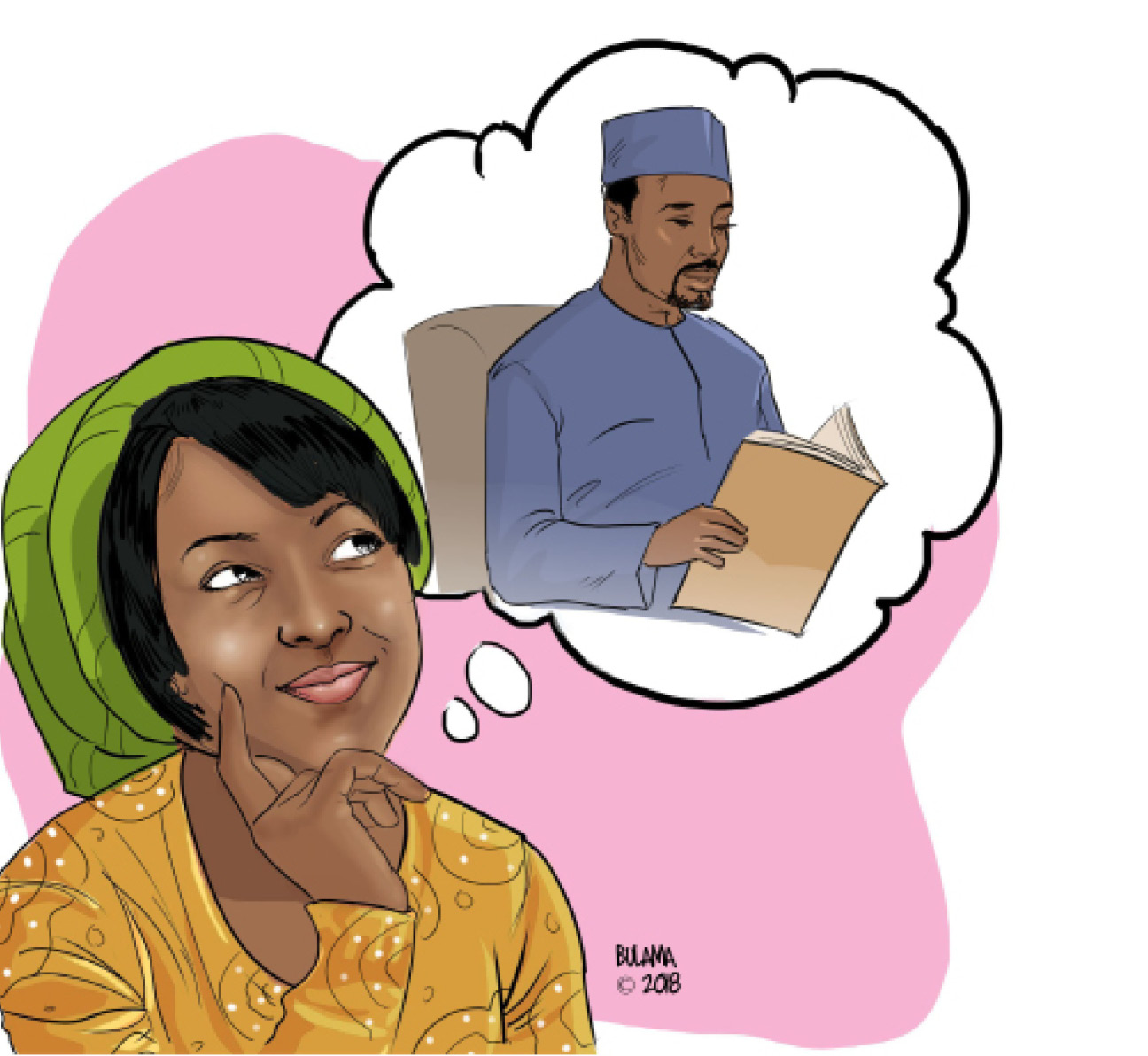‘Trust you to drag someone down memory lane, in any way or tongue you wish.’ Tahir remarked, towering over me, as I remain seated on the settee in our living room.
‘Are you referring to this song?’ I asked, lifting up my phone from where plays the song we all grew up thinking was “Habibu dan makaranta”.’
‘Yes, indeed I am’ he replied, sitting next to me. ‘I can’t remember how long ago I knew it but I do know that it’s an old love song that was always being played on the radio when we were kids. And it’s refreshing to know that you value Hausa love songs as well. Last time I checked, the love songs you listen to were all foreign and in English.’ He added, with a smile.
‘That’s true hubby dearest. But I think I knew this song long before I discovered English music. For as long as I can remember, it was being played on my mother’s radio, during Hausa musical request programmes. Those request programmes were being aired several times a day beginning from 8am and since Mama’s radio was often on, most of the day, this song was sometimes repeated several times in one day. It was a hit in those days. And the first Hausa love song I knew.’ I replied.
‘I see, so were you listening to a musical request on your phone now?’ He asked.
‘No, I was in a group chat when a member suddenly posted the song, and like you said, took us all down memory. Most members commented on how they liked the song, knew it from childhood etc. Then someone began to speculate as to who the subject of the agonising love story was. There were a number of guesses which included a Kano based civil servant in his seventies, an elderly Zaria prince etc, either because they were named Habibu or else had some connection with the singer.’ I explained.
‘How interesting! So you haven’t really uncovered the identity of the mysterious lover?’ He asked.
‘Well we did, in a way. And that’s the worst part of it Tahir. The discovery ruined everything. It totally destroyed the charm and the romantic essence of the ancient serenade.’ I disclosed, sadly.
‘Really, how can finding out what you wished to know destroy everything?’ He queried.
‘Because, our romantic hero never really existed. He was only a figment of someone’s imagination. There I was, thinking from an early age, that a lady in love had been heartbroken because her sweetheart, Habibu the student, had gone back to school. She went on for days without food because of their separation. And the part that used to grab my fertile childhood imagination was when she croons “na zama kurma Habibu na zama kurma’ I have gone deaf, Habibu, I have gone deaf.” I used to wonder how one could go deaf out of love. It was when I grew up that I realised she possibly meant she was deaf to all reason or arguments that didn’t tally with her romantic state. Now all that is gone because the whole story was cooked up and sang in the RTK (Radio/Television Kaduna) studio, in the early seventies.’ I declared.
‘But that’s true of most, if not all the love songs you knew and cherished. Most of them never really happened, they are the product of some very creative imaginations. So why should this one be any different? And why should the discovery make you unhappy?’ He asked.
‘Maybe because I wanted it to be true that a young Hausa lady had the chance to fall so madly in love with a young student, that she captured it in a great love song which chronicles her pains and suffering, and remains to be heard for generations to come. Maybe that’s the part I like, the discovery that love stories are not limited to the lives of Indians and Arabs and White people but to black Africans as well. And another worst part of our findings was that the hero’s name wasn’t even Habibu it was Azizu. For decades, we listened and loved a song we thought was in praise of true love shared by a man named Habibu, you know ‘Habib’ means ‘the beloved’ in Arabic, so everything seemed perfect. Only for someone to destroy that by saying the name was Azizu, which is short for Abdul’aziz.’ I concluded.
‘But are you sure about all this? I can’t help thinking the part about the name was wrong. I mean it was Habibu I’ve been hearing all these years. Who told you all this?’ Tahir demanded.
‘The man who did painstaking research about the song and even interviewed it’s writer and producer disclosed it after a request from our group chat.’ I replied.
To be continued.

 Join Daily Trust WhatsApp Community For Quick Access To News and Happenings Around You.
Join Daily Trust WhatsApp Community For Quick Access To News and Happenings Around You.

